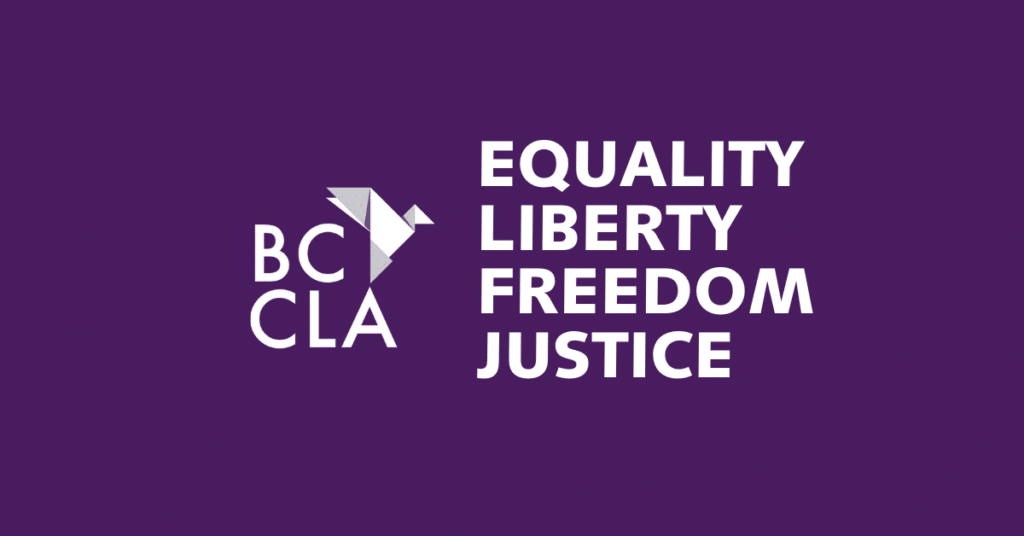REMINDER – Media Advisory of Press Conference: Legal, Indigenous, and human rights organizations speak up against police brutality targeting Palestine Solidarity movement

Media Advisory of Press Conference: Legal, Indigenous, and human rights organizations speak up against police brutality targeting Palestine Solidarity movement; lawyers detail avenues being pursued to demand accountability from VPD. […]
Media Advisory of Press Conference: Legal, Indigenous, and human rights organizations speak up against police brutality targeting Palestine Solidarity movement
For Immediate Release Media Advisory of Press Conference: Legal, Indigenous, and human rights organizations speak up against police brutality targeting Palestine Solidarity movement; lawyers detail avenues being pursued to demand […]
BCCLA and OpenMedia React: Bill S-210 leaving committee stage without adequate study
Vancouver, BC / unceded Coast Salish Territories – The BC Civil Liberties Association (BCCLA) and OpenMedia are disappointed that the House Standing Committee on Public Safety and National Security (“SECU”) […]
BC Civil Liberties Association 2023 Annual Report
Throughout 2023, the BCCLA persisted in our fight to uphold freedom and justice across Canada, sharpening our focus on the inextricable connection between civil liberties and human rights. The BCCLA’s […]
Media Advisory: BCCLA at Supreme Court of Canada to defend the right of voters to be informed

WHAT: BCCLA at Supreme Court of Canada to intervene in Attorney General of Ontario v Working Families Coalition (Canada) Inc., et al. to argue that the right to vote cannot […]
BCCLA disappointed by Supreme Court of Canada decision upholding the military court martial system

Ottawa, ON (unceded territory of the Algonquin/Omàmìwininìwag) – The BC Civil Liberties Association (BCCLA) is disappointed in today’s Supreme Court of Canada’s (SCC) decision in R v Edwards et al, […]
2024 Budget Fails People with Disabilities

The BC Civil Liberties Association joins the chorus of persons with disabilities (PWD) and disability advocacy groups in expressing our profound disappointment in the federal government’s failure to make good […]
Media Advisory: BCCLA, Animal Justice, and Centre for Freedom of Expression at the Ontario Court of Appeal to defend the public interest in challenging government decisions

WHAT: BCCLA, Animal Justice, and Centre for Freedom of Expression at the Ontario Court of Appeal to jointly intervene in Democracy Watch v Ontario Integrity Commissioner, to defend the public […]
Press Release: Seven Years Later and We are Still Waiting for Justice for Dale Culver

Prince George, BC (unceded territory of the Lheidli T’enneh First Nation) – In July 2017, Dale Culver, a 35-year-old Wet’suwet’en and Gitxsan man was killed by the RCMP in Prince […]
Media Advisory: BCCLA at Supreme Court of Canada to urge police accountability when contemplating a warrantless search and seizure of electronic communications

WHAT: BCCLA at Supreme Court of Canada to intervene in R v Campbell to ensure police accountability when contemplating a warrantless search and seizure of electronic communications WHEN: March 21, […]
